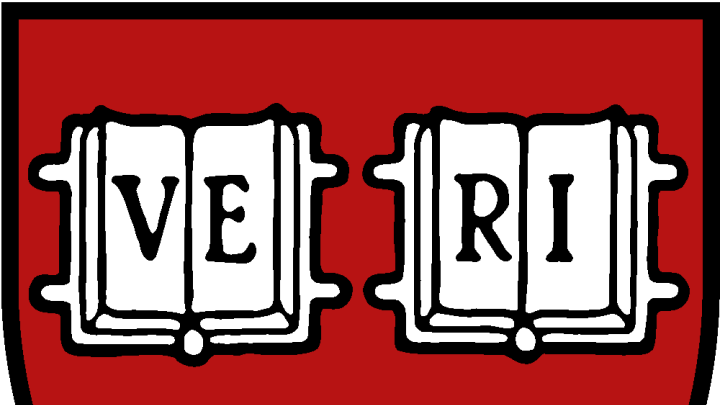When the Faculty of Arts and Sciences (FAS) voted last May to adopt an undergraduate honor code, in the wake of the largest recent case of student misconduct on an examination, debate swirled around implementation: how, exactly, students would affirm their compliance. The legislation called for an “Affirmation of Integrity,” to be drafted by the dean of the College, for consideration by the full faculty before its inclusion in the College Handbook for Students. With the code scheduled to be put into effect at the beginning of the next academic year, in August, the faculty has now turned to the mechanics, discussing draft language and procedures that will be presented for discussion at its scheduled faculty meeting this afternoon.
On behalf of the Committee on Academic Integrity (whose members include faculty, staff, and students), which wrote the code, dean of undergraduate education Jay M. Harris moved:
- That incoming undergraduates be asked to submit a brief personal response to the Honor Code prior to the start of their first semester in the College.
- That at registration all students be required to affirm their awareness of the Honor Code.
- That the Faculty ask students to affirm their awareness of the Honor Code during seated final exams and take-home exams, on the final version of their senior theses, and on all other final papers and projects.
- All student work falls within the scope of the Honor Code and is subject to the rules of the faculty regarding academic honesty. Faculty in individual classes are encouraged to ask students to affirm their awareness of the Honor Code on assignments when appropriate.
FAS rules require that such substantive legislation be discussed before voting at a subsequent meeting.
In the “Proposal for Affirmation,” an explanatory paper distributed to the faculty that provided more background, FAS members were reminded that they had adopted this Honor Code language:
Members of the Harvard College community commit themselves to producing academic work of integrity—that is, work that adheres to the scholarly and intellectual standards of accurate attribution of sources, appropriate collection and use of data, and transparent acknowledgement of the contribution of others to their ideas, discoveries, interpretations, and conclusions. Cheating on exams or problem sets, plagiarizing or misrepresenting the ideas or language of someone else as one’s own, falsifying data, or any other instance of academic dishonesty violates the standards of our community, as well as the standards of the wider world of learning and affairs.
To effect the code, students are to affirm their commitment to integrity; the current legislation addresses the nature and frequency of that affirmation—evidence that they have read the code and “understand their responsibilities as members of an academic community” and in accordance with the Handbook.
In arriving at the mechanisms they propose, the committee members noted that they had consulted extensively with Harvard Business School colleagues who have investigated similar affirmations in academia and professional settings. From that consultation, they became convinced that “the most effective affirmations were based on students engaging both personally as well as formally and institutionally with the Honor Code.” Accordingly, beginning this fall:
- Freshmen “will receive information (including a video) about the Honor Code when they accept the offer to attend Harvard. They will be asked to write a brief paragraph expressing what the Harvard College Honor Code means to them. As students may not be able to address the Harvard College Honor Code with which they are not familiar, the prompt may be, ‘What does academic integrity mean to you? What can you do in your college experience to uphold the values of the Honor Code? What will you do to facilitate a culture of learning?’” Their statements will be made available for them to review and revise during their subsequent terms as students in the College. And they will discuss their statement with their academic adviser or peer advising fellow.
- In 2015, sophomores will be asked to write in response to a prompt along these lines: “At College, there are often pressures to perform at a high level. During your freshman year, you may have encountered situations where it was more difficult to uphold the shared community values of academic integrity. Given the pressures you’ve faced and your experiences during your first year, what advice would you give to freshm[e]n?”
- Formal engagements with the code will include freshman orientation discussions; an affirmation of awareness of the code for all students during registration; an e-mail reminder about the code at the beginning of reading period (if possible, containing the students’ own personal statements); and, at exams, during completion of senior theses, and on all other final papers and projects, faculty members will ask students to affirm their awareness of the code. (All student work falls within the scope of the code, of course, and is “subject to the rules of the Faculty regarding academic honesty.”)
Finally, when providing the affirmation for students to sign, the committee provides this model language for faculty members who may wish to use it:
“I attest to the honesty of my academic work and affirm that it conforms to the standards of the Harvard College Honor Code.”








